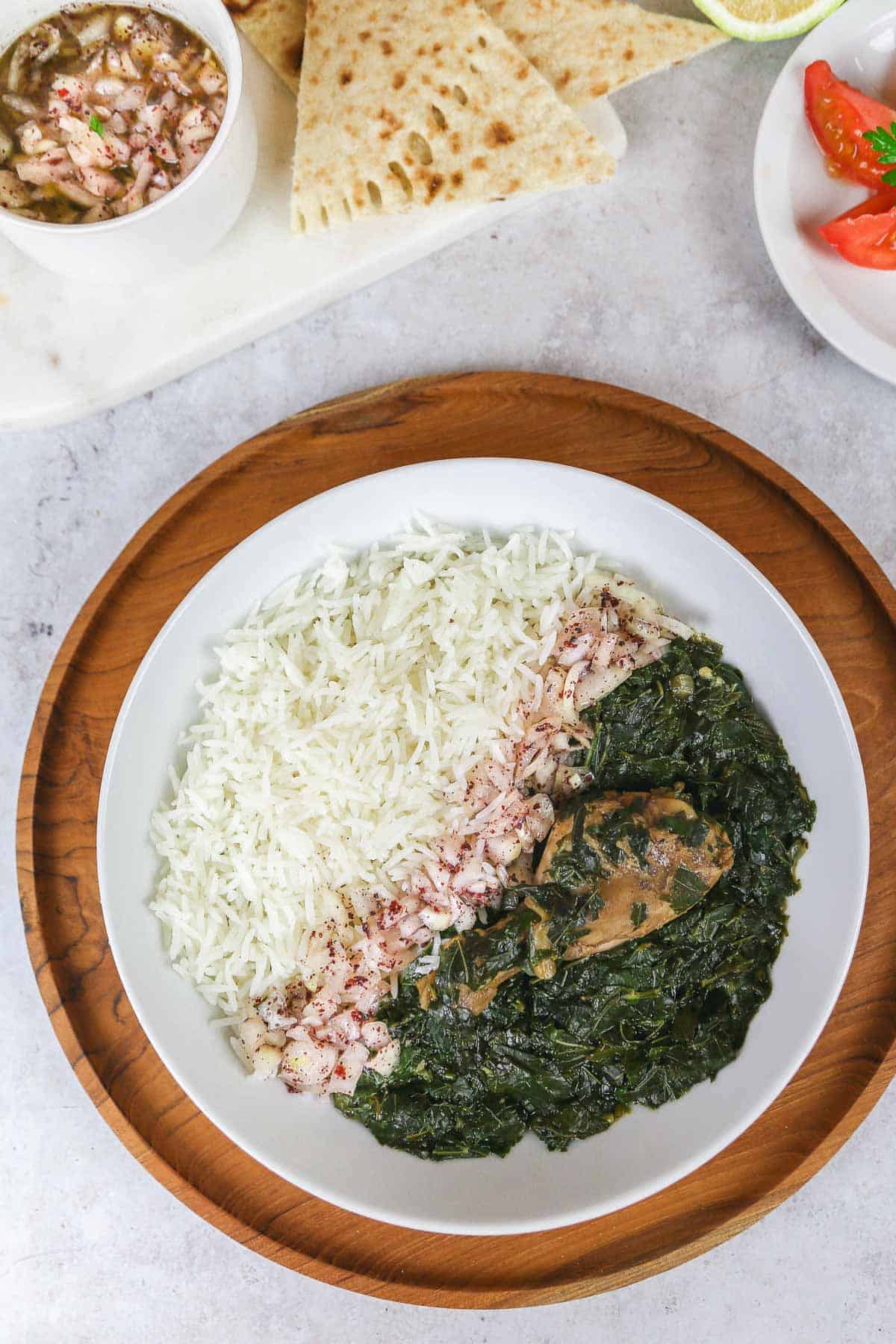Mulukhiyah
molokhia, ewedu, ملوخية, jute leaves soup
Mulukhiyah , also known as mulukhiyya , molokhiyya, melokhiyya, or ewédú, is a type of jute plant and a dish made from the leaves of Corchorus olitorius, commonly known in English as jute, jute leaves, jute mallow, nalta jute, or tossa jute. It is used as a vegetable and is mainly eaten in Egypt, the Levant (Syria, Lebanon, Palestine, and Jordan), Sudan, Cyprus, Libya, Tunisia and Algeria. It is called saluyot in the Philippines. Mulukhiyah is rather bitter, and when boiled, the resulting liquid is a thick, highly mucilaginous broth; it is often described as "slimy", rather like cooked okra. Mulukhiyah is generally eaten cooked, not raw, and it is either eaten chopped and sautéed in oil, garlic and cilantro like in Syria or turned into a kind of soup or stew like in Egypt, typically bearing the same name as the vegetable in the local language. Traditionally, mulukhiyah is cooked with chicken or at least chicken stock for flavor and is served with white rice, accompanied with lemon or lime. In Tunisia, the dish is prepared with jute powder instead of the leaves and cooked with lamb or beef to be served with bread. In Haiti, a dish prepared from jute leaves is called lalo. Most scholars are of the opinion that mulukhiyah's origins lie in Ancient Egypt, namely Corchorus capsularis, which is used for food as well as for fiber.
Source: Wikipedia
Recipes









:max_bytes(150000):strip_icc()/images-sys-201202-r-molokhia-with-spiced-chicken-bea0197a8f0545d4bbaf563ee856e636.jpg)




